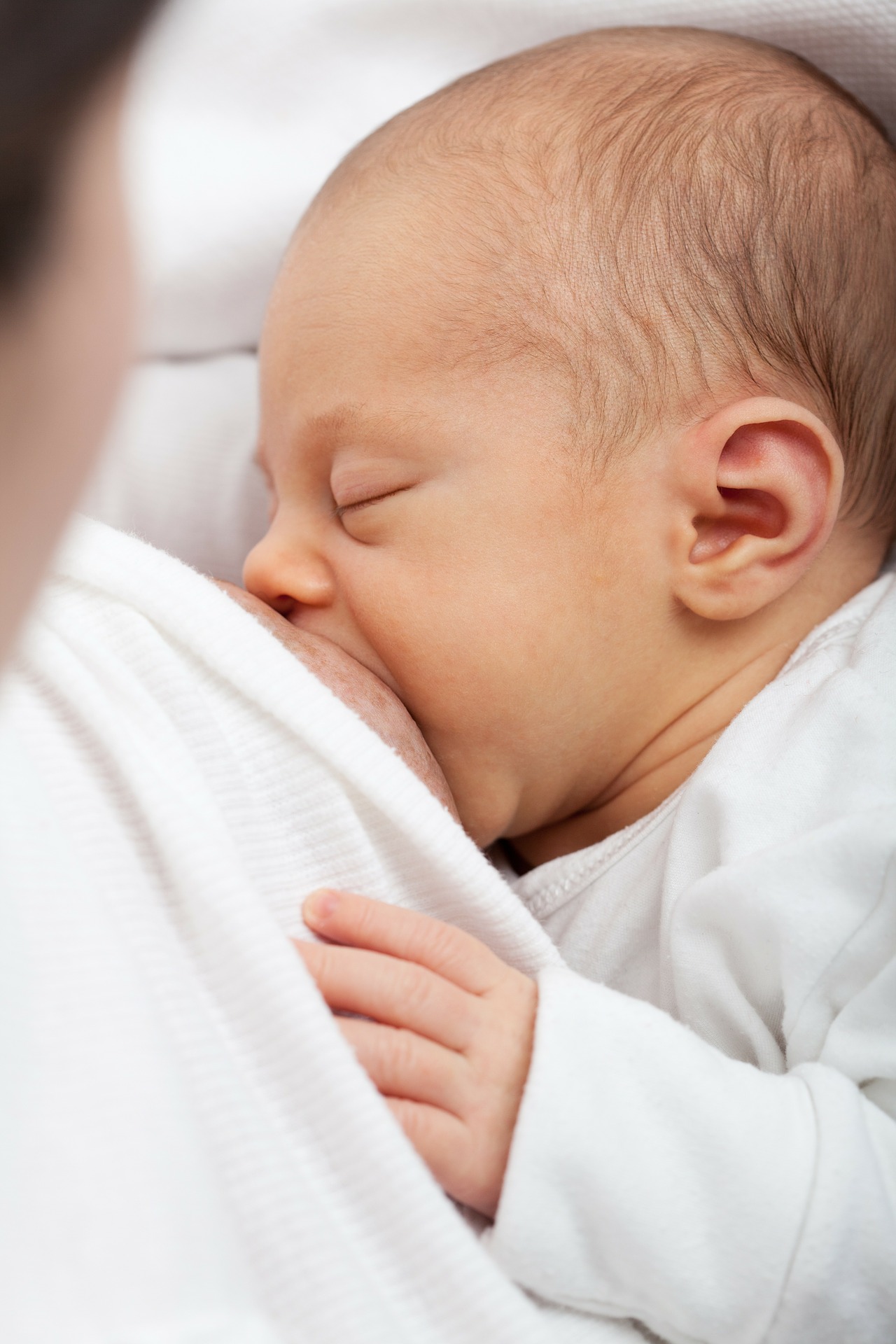Common Problems
Breastfeeding is the natural way to feed your baby but it is a skill that both you and your baby need to master. Practise makes perfect! With good information and support you will become confident and be able to resolve any problems that you may encounter.
Sore/cracked Nipples
In the early days sore nipples tend to be the result of the baby not being attached correctly.
When the attachment is not correct your nipple can easily becomes grazed or cracked from your baby’s gums pinching it or from your nipple rubbing against the roof of your baby’s mouth.
TIP
Once the attachment is correct your nipple will be able to heal. Ask midwife or your health visitor if you need additional help.
A little breast milk expressed onto the nipple after the feed will help the area to heal. If your nipple is cracked you maybe advised that moist healing can be helped with a pure lanolin based cream.
Full, tender breasts
This can happen in the early days 1-5 when your milk production gets underway. The excess milk may be due to baby being sleepy and not feeding often, maybe you have been separated from baby initially. If baby’s time at the breast is limited or they are given formula this will cause your breasts to feel full tender and swollen.
Later on in your breastfeeding journey you may experience this if your baby has missed a feed or has slept through the night.
TIP
Feed your baby if possible. If you warm bathe your breast before a feed and cold bathe after the feed you will find this soothing and helpful. You may find it useful to hand express a little milk off so that your baby is able to latch on properly to the breast
Sleepy baby
Your baby may be sleepy following the birth and may be a little sedated from medication that you had in labour. Although it can happen at any time it is most common in the first few days.
TIP
Keep baby close with lots of skin to skin contact, so that they can have easy access to the breast when they are ready. By keeping baby close you can look out for feeding cues. Remove his clothes and blankets and massage him gently. Maybe baby is too warm? Changing his nappy will sometimes encourage them to wake up.
Express some colostrum / milk onto your nipple to encourage him to feed. Ask your health professional for support.
Mastitis and blocked ducts
This is when your breast feels tender and lumpy and you may have flu like symptoms. Sometimes a milk duct can become temporarily blocked. This can be the result of a tight bra or maybe baby is feeding less frequently.
Mastitis is caused when a blocked duct becomes inflamed and occasionally infected.
If you are concerned speak to your Midwife or Health Visitor if your breasts feels tender and lumpy.
TIP
It is most important that you continue to feed from the affected breast. Check to ensure that your baby is attached well at the breast. Rest, pain relief and an anti-inflammatory may be prescribed. Your health professional may refer you to your GP who will occasionally prescribe antibiotics.
La Leche League provides further information on causes and treatment of mastitis and blocked ducts.
Thrush
Your nipples will be sore, red or pale, sometimes shiny, and you will notice that they feel itchy and burning. The soreness continues despite baby being well attached. If the thrush is within your breasts as opposed to just on the nipple you will experience a sharp burning shooting pain within the breast that continues after you have fed. You may or may not notice a thick white coating on your baby's tongue, inside cheeks and gums.
If you are concerned speak to your Midwife or Health Visitor if your nipples are sore, red or pale and feel itchy and burning.
TIP
Even if your baby has not got a white coating in their mouth you still need to see your GP who will prescribe an antifungal treatment for both you and your baby if thrush is diagnosed.
Remember any breast milk that you have expressed before you started treatment will need to be discarded.
Information to help identify if Thrush is causing your sore nipples and what to do about it.
If you or your baby are feeling unwell, please contact your GP in the usual way.
Tongue Tie
Tongue Tie is where the Frenulum (the piece of skin connecting the tongue to the bottom of the mouth) is shorter or tighter than usual. It may not cause any problems, but sometimes it can restrict the movement of baby’s tongue causing them difficulties with breastfeeding. This can mean baby does not put on enough weight as they are not able to feed effectively and It can also cause you pain when feeding.
Treatment is available for a tongue tie that is causing Breastfeeding issues in the form of a Frenulotomy which is a quick and painless procedure where the frenulum is snipped by a trained professional. If your baby is having issues maintaining a latch and you are experiencing pain when feeding then contact your Midwife or Health Visitor for an assessment who will be able to make a referral if needed.

Myth
I won't be able to feed baby as I have inverted nipples / small breasts
Exploding the Myth:
Not true!
With help and support to correctly latch in the early days, you will be able to feed your baby.
